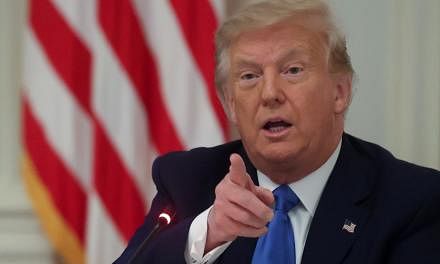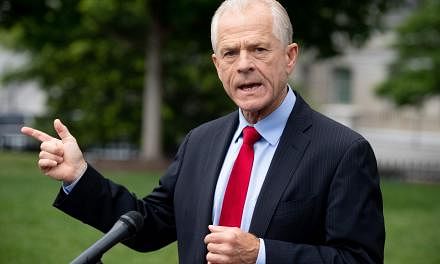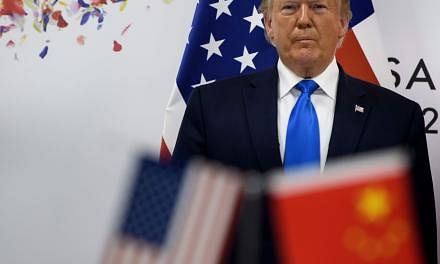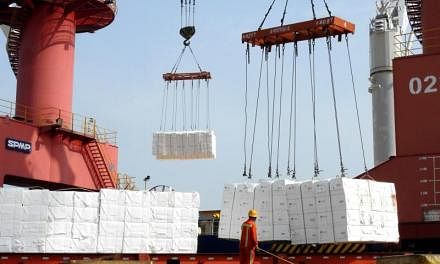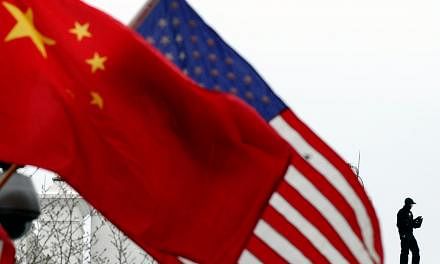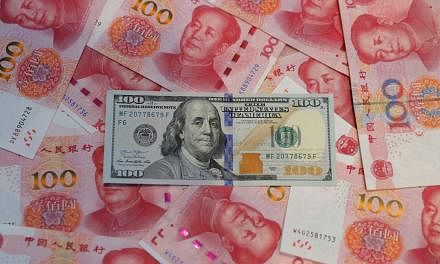WASHINGTON • United States and Chinese negotiators met for a sixth straight day of talks yesterday in a last-ditch bid to resolve their trade dispute as a deadline loomed.
The world's two biggest economies are racing to seal a deal before a March 1 deadline to avoid an escalation of the tit-for-tat tariffs that have already disrupted global commerce, slowed the world economy and roiled financial markets.
US President Donald Trump has threatened to dramatically hike tariffs on US$200 billion (S$271 billion) worth of Chinese imports to 25 per cent from 10 per cent unless there is a deal.
Talks were extended through the weekend after both sides reported progress in narrowing their differences. The two sides had met for over seven hours on Saturday in talks Mr Trump described yesterday as "very productive".
Writing on Twitter before leaving for Hanoi for his summit with North Korean leader Kim Jong Un, which takes place on Wednesday and Thursday, Mr Trump said Chinese President Xi Jinping has been "very helpful" with the summit.
This is the fourth round of negotiations since Washington and Beijing agreed to a ceasefire in their trade war in December.
Mr Trump, who has embraced an "America First" policy aimed at rebalancing global trade in favour of the US, had said on Friday that there was "a very good chance" a deal would be struck, and that he was inclined to extend his March 1 tariff deadline and meet Mr Xi to finalise any deal.
US Treasury Secretary Steven Mnuchin has said a meeting for late next month at Mr Trump's Mar-a-Lago resort in Florida was being planned.
Extending the deadline would mean putting on hold a scheduled increase in tariffs. Mr Mnuchin said US and Chinese officials had reached an agreement on currency issues, but did not give details.
Reuters reported exclusively on Wednesday that both sides were drafting memorandums of understanding (MOUs) on cyber theft, intellectual property rights, services, agriculture and non-tariff barriers to trade, including subsidies.
On Friday, Mr Trump said he did not like MOUs because they are short-term in nature, and he wanted a long-term deal.
An industry source briefed on the talks said both sides have narrowed their differences on intellectual property rights, market access and reducing a nearly US$400 billion US trade deficit with China. But bigger differences remain on changes to China's treatment of state-owned enterprises, subsidies, forced technology transfers and cyber theft.
There is no agreement on the enforcement mechanism either.
REUTERS


